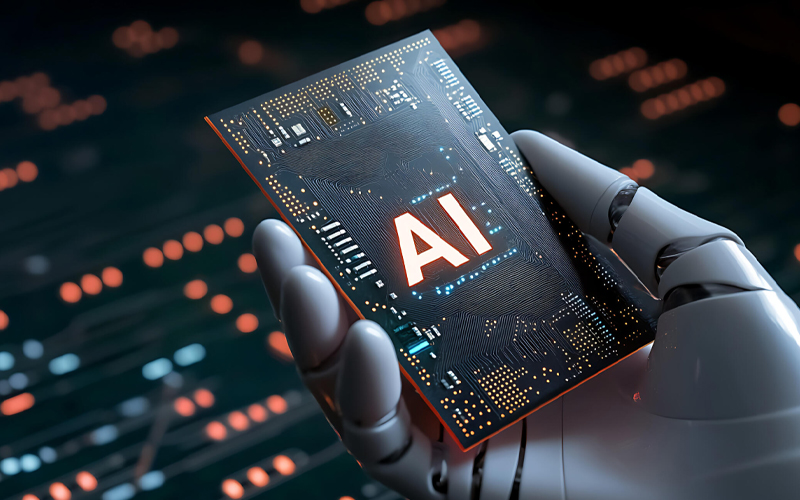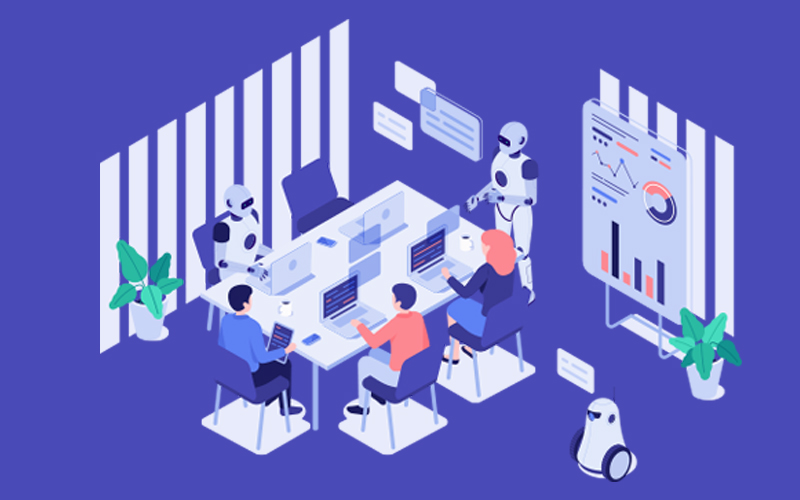Accounts payable (AP) is often behind the scenes, but inefficiencies in this area can significantly impact supplier relationships, distort cash-flow forecasts, and waste valuable time. While finance teams have leveraged technologies like optical character recognition, rule-based scripts, and robotic process automation to improve AP, these solutions, though beneficial, are not revolutionary.
The real transformation in AP is now being driven by agentic AI – intelligent software systems that autonomously analyse, decide, and refine their processes over time. This blog examines how agentic AI is enhancing accounts payable operations, surpassing traditional automation, and shaping the future of financial operations.
what are AI agents?
AI agents are intelligent software programs that autonomously sense, reason, and act toward defined goals. Unlike traditional automation, which follows fixed workflows, AI agents adapt to changing inputs, collaborate with other agents when required, and optimise outcomes based on real-time data.
When multiple agents work together and share context, the architecture is referred to as agentic AI. The key differentiator is intent: rather than executing static tasks, AI agents assess the best path to a result and adjust based on evolving priorities, data, or policies.
This agent-driven model is now advancing financial operations, particularly the invoice-to-pay cycle, where real-time adaptability and autonomous decision-making deliver greater speed, accuracy, and cost efficiency.
rethinking accounts payable with agentic AI
Agentic AI is transforming accounts payable by automating manual tasks and improving overall efficiency in financial processes. Here’s how AI is revolutionizing accounts payable:
- AI Automation: Routine tasks like invoice processing, payment approvals, and vendor management are now automated, reducing errors and speeding up the process.
- ERP Integration: AI agents integrate seamlessly with ERP systems, streamlining workflows and eliminating data silos within accounting departments.
- Faster Payment Cycles: With AI-powered automation, payment approval and processing times are significantly reduced, enabling businesses to maintain strong supplier relationships and avoid late payment penalties.
- Automate data capture and validation with high accuracy,
- Accelerate exception handling and approvals,
- Maintain continuous audit readiness,
- And improve working capital through optimised payment scheduling.
transforming accounts payable with intelligent, collaborative AI agents
Modern accounts payable (AP) operations are being redefined by autonomous AI agents – each specialised in a core function of the process and working in concert toward a shared objective: ensuring timely, accurate, and optimised payments. Unlike legacy tools, these agents are interconnected and context-aware, enabling seamless decision-making across the AP lifecycle.
Key components of an intelligent AP ecosystem include:
 Capture agent - Combines computer vision with large language models (LLMs) to “read” any invoice, including handwritten notes or image-only scans. Field-level accuracy now exceeds 90% without weeks of template training.
Capture agent - Combines computer vision with large language models (LLMs) to “read” any invoice, including handwritten notes or image-only scans. Field-level accuracy now exceeds 90% without weeks of template training.
 Matching agent - Compares captured data with purchase orders, contracts, and goods-received notes. Over time it learns fuzzy-match patterns, so straight-through processing increases.
Matching agent - Compares captured data with purchase orders, contracts, and goods-received notes. Over time it learns fuzzy-match patterns, so straight-through processing increases.
 Exception-resolution agent - Starts a chat with the requester or the supplier when something doesn’t add up. It gathers missing data, proposes corrections, or escalates policy breaches, often closing exceptions hours rather than days later.
Exception-resolution agent - Starts a chat with the requester or the supplier when something doesn’t add up. It gathers missing data, proposes corrections, or escalates policy breaches, often closing exceptions hours rather than days later.
 Anomaly-detection agent - Scans every invoice in real time, seeking duplicate numbers, fraudulent bank details, or suspicious price spikes. Because it reasons over patterns, not rules, it slashes false positives and raises genuine red flags early.
Anomaly-detection agent - Scans every invoice in real time, seeking duplicate numbers, fraudulent bank details, or suspicious price spikes. Because it reasons over patterns, not rules, it slashes false positives and raises genuine red flags early.
 Payment-optimisation agent - Weighs supplier terms against cash-flow forecasts and market yields to propose the perfect payment date. Some early adopters have squeezed 1 to 2% extra savings from early-payment discounts and dynamic discounting.
Payment-optimisation agent - Weighs supplier terms against cash-flow forecasts and market yields to propose the perfect payment date. Some early adopters have squeezed 1 to 2% extra savings from early-payment discounts and dynamic discounting.
What sets this AI-driven architecture apart is its cohesive intelligence. These agents do not function in silos; they operate as a synchronised network, sharing data and insights via internal knowledge graphs or natural language communication. This integrated approach enhances decision-making, drives agility, and ensures end-to-end process efficiency.
For finance leaders, this means fewer manual interventions, better liquidity management, stronger compliance, and measurable savings – delivered through an adaptable, self-improving AP infrastructure.
other use cases of AI agents in accounts payable
Once agents control the invoice-to-pay engine room, finance leaders quickly push them into adjacent territory:
- Supplier onboarding and risk checks – A conversational agent gathers tax certificates, validates addresses, and screens new vendors against sanctions lists in minutes.
- Dynamic discount marketplaces – Agents forecast daily liquidity, bundle payable invoices, and publish early-payment offers to suppliers automatically.
- Real-time cash-flow forecasting – Liability data streams straight into treasury models, improving forecast accuracy by double-digit percentages.
- Effortless audit readiness – Every action an agent takes is immutably logged, giving auditors a searchable, time-stamped journal with no extra effort.
- ESG and diversity reporting – By tagging suppliers with environmental or diversity scores, agents surface sustainability insights alongside spend data in a single dashboard.
key benefits of agentic ai in accounts payable
The key benefits of Agentic AI in accounts payable are numerous:
- Increased Efficiency: Automating manual tasks like invoice matching and payment approvals helps reduce the time spent on administrative work, allowing staff to focus on strategic decisions.
- Accuracy and Compliance: AI-driven automation ensures data accuracy and compliance with tax regulations, minimizing errors and streamlining audits.
- Cost Savings: By eliminating manual processes, businesses can reduce their need for large accounting teams, lowering overhead costs and improving operational efficiency.
- Fraud Detection: Agentic AI continuously monitors payment patterns to identify anomalies, fraud, or payment errors before they happen, enhancing security.
- Scalability: As your business grows, AI can easily scale to handle increasing transaction volumes without needing additional human resources.
Benefits of AI agents
Deploying agentic AI drives a range of benefits that extend well beyond simply reducing headcount:
- Near-perfect accuracy – Self-correcting capture agents almost eliminate data-entry error rates, which is impossible with manual keying.
- Fraud resilience – Pattern-seeking anomaly agents catch duplicate invoices, bogus bank accounts, and collusion schemes that fixed rules miss altogether.
- Audit and compliance confidence – Cryptographically signed logs give regulators and auditors everything they need without extra reconciliation work.
- Employee experience – Junior accountants move beyond routine data entry to focus on supplier analytics, enhancing job satisfaction, improving retention, and fostering skill development.
- Strategic insight – The CFO gains detailed, real-time visibility into spend categories, payment terms, and discount optimisation, transforming AP data into a valuable strategic asset.
the technology behind AI agents
Several breakthroughs converge to make agentic AP viable right now:
- Foundation models – Transformer-based LLMs power language and reasoning, allowing agents to understand policies, supplier emails, and line-item nuances.
- Next-gen computer vision – Self-supervised vision networks recognise logos, handwriting, and skewed scans without template armies or brittle heuristics.
- Multi-agent orchestration frameworks – Open-source stacks such as LangGraph or CrewAI choreograph specialist agents under a shared intent, eliminating the need for a monolithic mega-model.
- Reinforcement learning with human feedback (RLHF) – Every corrected field or approved suggestion becomes training data, so the system self-improves at the moment of use.
- Vector databases and knowledge graphs – Supplier histories, contract clauses, and policy snapshots live as embeddings, enabling millisecond retrieval in context.
- Event-driven micro-services – Secure APIs link agents to ERP, banking rails, and supplier portals, all under zero-trust security principles that satisfy even the strictest CISOs.
What is to come
Looking ahead, three key frontiers are already emerging on the horizon:
- Cross-function super-agents – AP agents will soon swap data seamlessly with procurement, treasury, and inventory peers, automating the entire procure-to-pay lifecycle end-to-end.
- Synthetic teammates – Generative-AI avatars will coach new hires, simulate what-if cash scenarios, and negotiate early-payment terms with suppliers’ own bots, maximising extra value from every invoice.
- Regulated autonomy – Industry regulators and governments will introduce "explainability passports," requiring agents to provide a clear decision lineage before processing high-value payments. Early adopters will help shape these standards, rather than scrambling to adapt to them.
closing thoughts
Agentic AI is transforming accounts payable from a back-office function into a strategic asset that enhances supplier relationships, protects cash flow, and provides real-time financial insights. This technology is no longer experimental – it’s fully deployable, already delivering measurable results, and reshaping the way finance teams operate. For finance leaders, the question is no longer whether to adopt AI, but how soon to embrace this transformative technology.
FAQ
1. How does agentic AI differ from traditional robotic process automation (RPA) in accounts payable?
Traditional RPA follows fixed workflows and executes repetitive tasks based on pre-programmed scripts. In contrast, Agentic AI is autonomous and can adapt to changing conditions, make real-time decisions, and learn from data, leading to smarter, more flexible operations in accounts payable.
2. What are the key components of an intelligent accounts payable ecosystem powered by agentic AI?
An intelligent accounts payable ecosystem powered by Agentic AI includes key components like capture agents for data extraction, matching agents for verifying invoices against purchase orders, exception-resolution agents for handling discrepancies, and anomaly-detection agents for fraud prevention. These components work together to automate and optimize the entire AP process.
3. How does agentic AI improve fraud detection in accounts payable?
Agentic AI uses machine learning to analyze patterns and detect anomalies such as duplicate invoices, incorrect bank details, or unusual payment amounts in real time. This proactive approach reduces the chances of fraud and minimizes financial risks in the accounts payable process.
4. How does agentic AI ensure compliance with regulatory requirements in accounts payable?
Agentic AI ensures compliance by automatically applying the correct tax codes, validating invoice data against regulatory standards, and maintaining audit trails for transparency. This helps businesses stay aligned with local and international regulations, reducing the risk of non-compliance.
5. What is the potential cost savings associated with implementing agentic AI in accounts payable?
By automating routine tasks like invoice processing, payment approvals, and exception handling, Agentic AI reduces the need for manual intervention, leading to cost savings in labour and operational inefficiencies. Moreover, AI-driven payment optimization can also help businesses capture early payment discounts and optimize cash flow.







